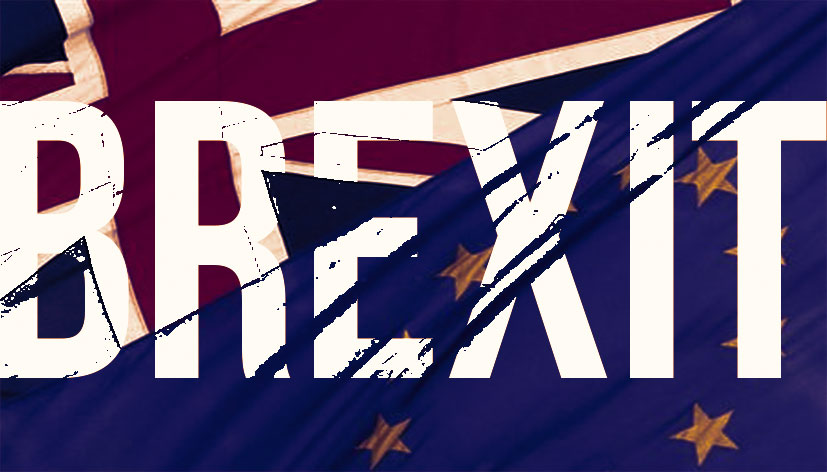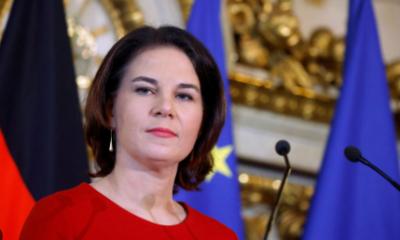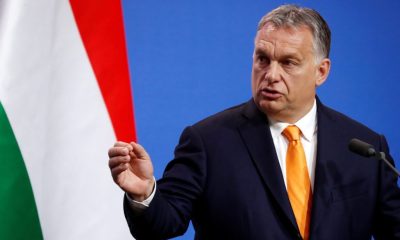Editorial
Brexit: Dream or reality?
Published
10 years agoon
By
Olu Emmanuel
THE United Kingdom is in mourning, sort of. A once strong, united and prosperous island is about to undergo a seismic parting of ways that will shake its proud foundation and weaken it for good. The harbinger of this historic tragedy is unfolding, while the free world is troubled by the turn of events. On Thursday 23rd June 2016, the history of Great Britain entered into a dark chapter. On that historically chastening day, the Prime Minister, David Cameron had to resign as the Prime Minister of the United Kingdom in total obedience to the voice and yearnings of his people. The British people voted to exit from Europe in what is popularly dubbed Brexit (an acronym for Britain exits from Europe), and stand as an insular nation (which it geographically is) from the rest of mainland Europe.
The aftershocks of the Brexit referendum is ricocheting all over the world as Great Britain slips into gradual deterioration in political, economic, social and cultural spheres. The turnout for the referendum was 71.8% of registered voters, with more than 30 million people voting for “Leave” or “Remain”. It was the highest turnout in a UK-wide vote since the 1992 general election. England, excluding London, voted strongly for Brexit, by 53.4% to 46.6%, as did Wales, with the “Leave” voters getting 52.5% of the votes and the “Remain” voters, 47.5%.
On the other the other hand, both Scotland and Northern Ireland stood for “Remain” in the EU. Scotland backed “Remain” by 62% to 38%, while 55.8% in Northern Ireland voted “Remain” and 44.2% Leave.
Historically, the European Union – popularly known as the EU – is an economic and political partnership involving 28 European nations. It began after World War II to foster economic co-operation, with the idea that countries which trade together are more likely to avoid going to war with each other. It has since grown to become a “single market” allowing goods and people to move around, basically as if the member states were one country. It has its own currency, the euro, which is used by 19 of the member countries, its own parliament and it now sets rules in a wide range of areas – including on the environment, transport, consumer rights and even things such as mobile phone charges.
What swung voters to Leave after months of bitter campaigning and name-calling, especially among the Tories, when for most of the time “Remain” adherents were slightly ahead? Four answers suggest themselves. One is that, despite repeated warnings from an alphabet soup of national and international bodiesthe Treasury, the IMF, the OECD, the CBI, the NIESR, the IFS and othersthat the economy would suffer as Brexit led to lower trade, less investment and lower growth, many voters were unimpressed because they did not feel the economy worked for them now. Michael Gove, the Justice Secretary, declared that “the people have had enough of experts” and even likened the economists who warned against leaving the EU to Nazi propagandists against Einstein.
ALSO SEE: How Brexit changes football
Leavers also took on a strong anti-establishment tone, championing losers from globalization and fiscal austerity. That message chimed well with Labour voters in northern England, who backed Leave unexpectedly heavily. The division between London, which voted strongly for Remain, and the north, which did the reverse, reveals a sharply polarized country, with metropolitan elite that likes globalization on the one hand, and an angry working class that does not, on the other. The Leave campaigners also won on immigration. Mr. Cameron was unable to say how he could meet his twice-promised target of reducing the net annual number of immigrants from “the tens of thousands” so long as Britain was bound by the EU principle of the free movement of people. The “Remainers” failed to convince voters that EU migrants brought economic benefits, or to explain that more than half of the 330,000 net immigrants in 2015 came from outside the EU. The Leave slogan, that Britain should “take back control” of its own affairs from Brussels, worked especially well on this issue.
It even trumped Mr. Cameron’s case that Brexit would be bad for security, voters chose to believe, instead, that more migration might let terrorists slip in. The Leave campaign also disguised its internal divisions. Leading Brexiteers like Messrs. Gove and Boris Johnson, the former mayor of London, were uncomfortable with an anti-immigration line, as they favoured a liberal Britain that might take more, not fewer, migrants from outside the EU. Both disowned a poster, put up by Mr. Nigel Farage, showing a line of dark-skinned migrants under the slogan “Breaking Point”. The fourth factor boosting Leave was the voting pattern. More than 64% of old people (over 65), who were anti-EU and passionate about Brexit, voted for the past, for “Leave”, while 75% of young people (18-24) voted for the future, for “Remain”.
ALSO SEE: No Brexit
The economic and trade problems arising from Brexit will dominate British politics for years to come. Security and foreign-policy concerns will also emerge. The political fallouts from the vote will extend far beyond the issue of Mr. Cameron’s successor. The tempest that broke across England was a gigantic revolt against a political elite who, for far too long, had taken working-class voters for granted. The economy, as well as the political establishment will suffer. June 23rd 2016 will remain a landmark day in British and European history.
Brexit will negatively impact on a tenuously united world, not least, the United Kingdom. It is a victory of nationalism over internationalism. For example, Nicola Sturgeon, Scotland’s First Secretary, has promised to take Scotland from the UK and remain in Europe; Northern Ireland is not unlikely to follow suit as its deputy First Minister, Mr. Martin McGuinness, has called for reunification with the Republic of Ireland. In that event, Britain will lose the qualifying adjective of “United”. The Dutch anti-immigration politician, Geert Wilders, said it was time for a Netherlands Nexit vote, while Matteo Salvini, the Leader of Italy’s Northern League, expressed similar sentiments for his country. The anti-immigration Sweden Democrats declared that they were “waiting for Swexit”. Identical sentiments have been expressed in Germany, Poland, France and Catalonia (Spain). In other parts of the world, such as Nigeria (Biafra), the USA (Texas), etc., where people have reared divisive tendencies, Brexit will encourage their fissiparous tendencies. On the whole, therefore, Brexit was a symptom of powerfully disruptive political forces that are bigger than British politics.
You may like


Baerbock- Germany pledges €100 million in winter aid for Ukraine


Hungary faults EU, advocates reforms


UniAbuja gets new Acting Vice Chancellor


Pelumi Nubi : London-to-Lagos solo driver honoured by Sanwo-Olu


UK Defence Chief commends Nigerian army’s commitment to stability in Africa


Finally, Twitter influencer, Dr Olufunmilayo exonerated of rape allegations by ex-girlfriend
Trending

 Entertainment6 days ago
Entertainment6 days agoSimi addresses resurfaced 2012 tweets amid online backlash

 Health1 week ago
Health1 week agoSCFN, LUTH introduce bone marrow transplants as curative treatment for sickle cell

 Health4 days ago
Health4 days agoDeclassified CIA memo explored concealing mind-control drugs in vaccines

 Football1 week ago
Football1 week agoHarry Kane nets brace as Bayern edge Frankfurt 3–2 to go nine points clear

 Football1 week ago
Football1 week agoLate Flemming header stuns Chelsea as Burnley snatch 1–1 draw at Stamford Bridge

 Crime5 days ago
Crime5 days agoSenior police officers faces retirement after Disu’s appointment as acting IGP

 Education6 days ago
Education6 days agoPeter Obi urges JAMB to address registration challenges ahead of exams

 Health6 days ago
Health6 days agoNAFDAC issues alert on suspected revalidated SMA Gold infant formula

